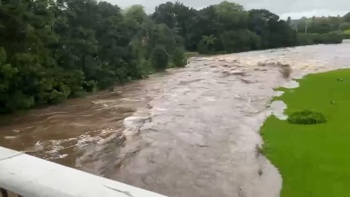- University of Auckland senate votes to pause a wider curriculum transformation programme amid course review concerns.
- Vice-chancellor Dawn Freshwater said the review aims to remove duplication and balance the course portfolio.
- The Tertiary Education Union and students voiced frustrations over communication and potential impact on smaller courses.
A rare stand-off between bosses and academics at the country’s largest university has taken a dramatic turn, with professors staging an emergency vote to try to block a controversial course shake-up.
One University of Auckland professor has called the move unprecedented – and a clear message to vice-chancellor Dawn Freshwater that the process has gone “off the rails”.
The flare-up began this month when faculty heads were told of a new proposal to review the university’s offerings, with smaller postgraduate and undergraduate courses in scope.
It was met with widespread alarm that a raft of courses across multiple faculties under certain numbers of enrolments were suddenly on the chopping block.
One department head emailed his colleagues saying those courses in scope for review would need a “clear justification” to be retained.
Academics also questioned the review’s tight timeframe – and why it wasn’t discussed at the university’s previous council meeting.
The university, meanwhile, has insisted the review is part of normal practice and rejects the suggestion it’s looking to cut all courses with lower student numbers.
The changes were coming ahead of a planned shift for 2026, when new transdisciplinary courses would start being rolled out.
After concerned students gathered for a rally last Thursday, professors this week called an emergency meeting of the university’s senate – a body made up of top faculty members that advises the council on academic matters. While the senate can make recommendations, the final decision on the likes of courses and curriculum sits with the council.
 Helen Schnabel, a global studies student, speaks at last week's rally at the University of Auckland's quad. Photo / Sylvie Whinray
Helen Schnabel, a global studies student, speaks at last week's rally at the University of Auckland's quad. Photo / Sylvie Whinray
Rather than vote to stop the course review, the senate went further and voted overwhelmingly in favour of pausing a wider ongoing programme to transform the university’s curriculum framework.
Notes provided to the Herald explained the motion was based on documents and emails indicating the course review was an expedited process and “not business as usual”.
It’d also been suggested the review was partly driven by a need to slash specialist teaching at undergraduate and postgraduate levels – which often came with small course sizes – to make space for generalist teaching at levels of more than 100 students.
“We think that moving with such speed could lead to unintended negative consequences for accredited degrees and the quality of education we deliver,” the notes said.
“Pausing the process needs to happen to allow time for faculty to properly consider the best course of action, given that our primary pedagogic responsibility remains to the students we are tasked with teaching in our areas of disciplinary expertise.”
One professor told the Herald that while the vote didn’t compel the university’s council to hit pause, it was nonetheless a rare and significant step.
“I can’t think of any precedent for this in any New Zealand university and it sends a strong message to council that this process has gone off the rails.”
Another said the vote highlighted the scale of the current disconnect between the university’s academics and administration.
“It was really quite a remarkable event: there was huge attendance, with no seats left in the room, and right in the middle of mid-term break.”
The academic said some faculty members had even raised the notion of a vote of no confidence in the university’s leadership, but expected the issues could be resolved before that happened.
“I think if it’s not addressed in some sensical way, with a decent amount of communication and discussion, then this could escalate further.”
The Tertiary Education Union (TEU) and Auckland University Students’ Association (AUSA) have also voiced their frustrations.
“[The university] has the opportunity now to put this to a halt and do the right thing,” said TEU organiser Nicole Wallace, adding the union would otherwise consider its own options.
AUSA president Alan Shaker said the main frustration was how the process had been communicated to students.
“The feeling amongst the student body at the moment is a lot of confusion and anxiety.”
 University of Auckland vice-chancellor Dawn Freshwater.
University of Auckland vice-chancellor Dawn Freshwater.
Shaker said the university had given assurances it wasn’t going to decimate its smaller courses, which the AUSA would be “strongly opposed” to.
He also said the association would have rather seen the senate vote to pause the course review process only, rather than the whole curriculum transformation programme.
A university spokesperson told the Herald the senate’s vote would now be reviewed by the council.
In a statement earlier provided to the Herald, Freshwater said the review was about looking for opportunities to “remove unnecessary duplication”, and to ensure the course portfolio was balanced and relevant.
“As new courses are added over time, we rebalance the curriculum by removing other courses that may be duplicative, or are no longer relevant or supported by student enrolments.
“This helps to maintain manageable staff workloads and reduces pressure on timetabling and teaching spaces.”
Freshwater, who addressed staff in an all-hands Zoom session on Wednesday, said the university adjusted its course offerings annually, but this year had taken an “early collective approach”.
“It is expected that this collective review will be broadly complete in August, with data and recommendations fed back into the normal annual faculty-based process for consideration and decision-making around potential course and regulation changes.”
Jamie Morton is a specialist in science and environmental reporting. He joined the Herald in 2011 and writes about everything from conservation and climate change to natural hazards and new technology.
Take your Radio, Podcasts and Music with you









